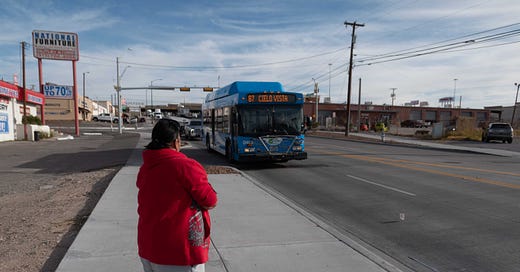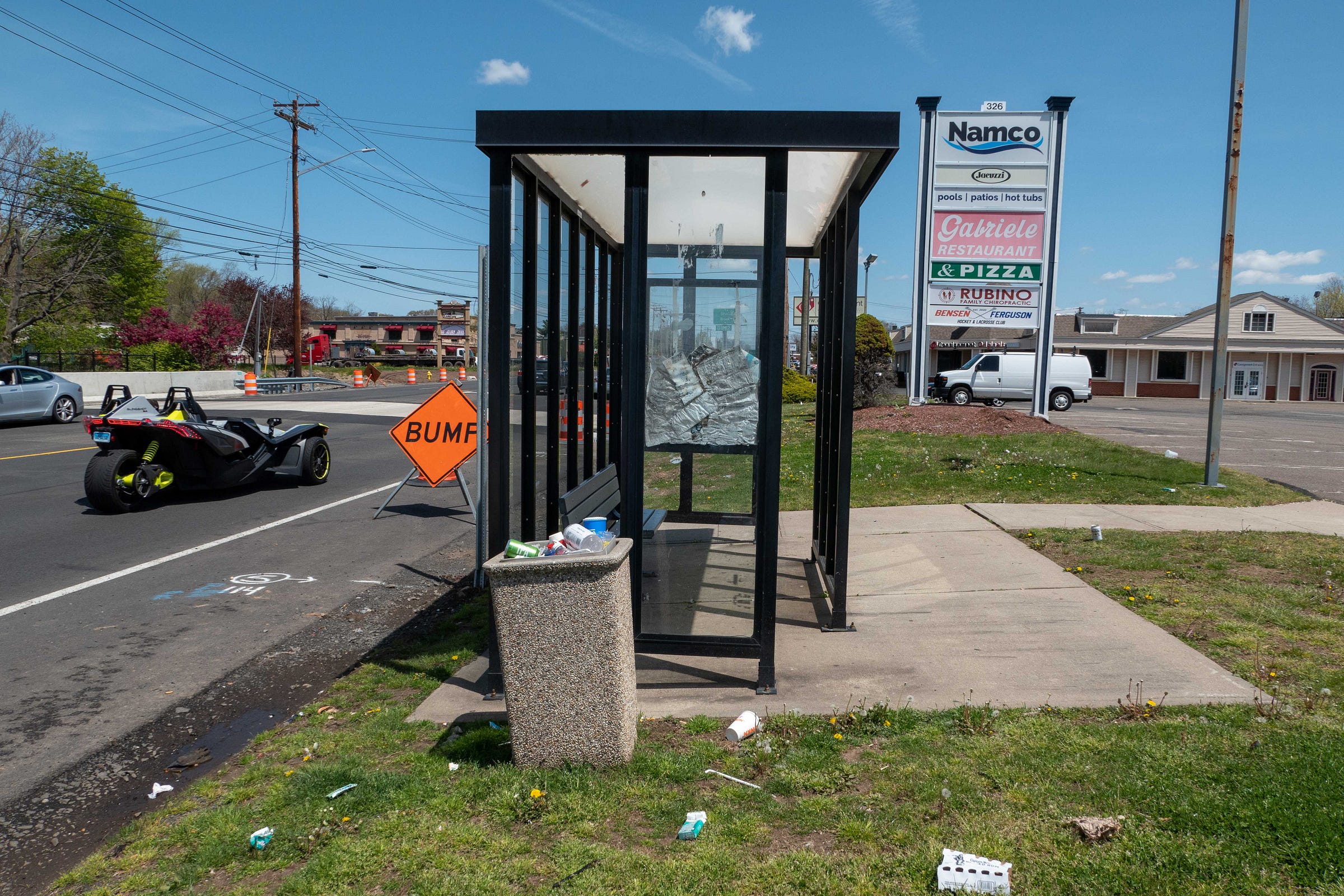(This is effectively two different pieces, the first more policy focused. If that isn’t your thing, skip to the second part, personal thoughts about flying to São Paulo tonight. I considered making them separate posts, but I will be on the road and it’s a long weekend, so, think of it as two for the price of one. Until next week, have a great holiday weekend!)
This is a walking newsletter, but it could also be about buses, because that's the primary way to get around without a car. While trains, subways, and light rail tend to get the spotlight from supporters “of smart, walkable, mixed-use urbanism that is illegal to build in most American cities,” in the real world it’s buses that do the actual serious work of public transportation, as most realists know.
That's especially true outside of NYC, DC, and Chicago. In the majority of US cities, such as San Antonio, Jacksonville, Los Angeles, and El Paso, buses are the only option1 except Uber, and as such ARE public transport. Even in NYC, buses still carry close to half as many people as the subways.
As I’ve noted many times, outside of the dense parts of DC, NYC, and Chicago, when I’m on a bus, I am often the only person riding it by choice. Most others use them out of necessity, either economic, physical, and/or legal. They are too poor to own a car, unable to drive due to age/health, not allowed to drive due to a license-challenged past, or all of the above. Being on a bus in the US means you are somehow broken, without a car, money for an Uber, or friends to give you a lift, and consequently buses come with a stigma. To be less polite, buses are viewed as for losers, and so you'd be hard pressed to find bus fan clubs, beyond a few solitary and dedicated transportation nerds.
That reputation, and necessity, is why I seek them out, because I've always been drawn to the unfairly stigmatized, and also because, like walking, you tend to learn the most by riding buses since they pass through all of the city, rarely fast-forwarding through the messy parts. This explains another source of their stigma: buses are slow because they serve everyone.
Serving everyone is the distinguishing characteristic of buses, and is what makes me an unabashed lover of them. My rule, "if you want to know a city, walk it," can be modified, without great loss, to "if you want to know a city, ride its buses." Not only do you see all of the city, but you meet residents you might not otherwise.
I was uncharacteristically drawn into a trending debate on Twitter, about making buses free, started off by the rising popularity of NYC mayoral candidate Zohran Mamdani. Zero-fare buses is one of his signature issues, and as with all things political and NYC, it turned into a ping-pong game, bouncing between zero fare being the best thing ever for everyone to it will end society as we know it.
As usual, the reality is far more mundane, in the middle and nuanced, with the issue a distraction more than anything. So why get into it? Because I love buses and care about their health, and believe a functional system isn't confined to the nuts and bolts of policy, but to what our policy says about the value we place on the system. When we treat our public spaces and goods as not worthy of respect, that has cultural and social ramifications that propagate far beyond those spaces.
This issue is less about money and more about what we want buses to be. The free buses advocates are correct in pointing out that fares don't contribute much funding. Collecting itself is expensive, and with all the discounts to various groups, it's hardly worth it to charge, and doing so does slow buses down. While all of that's true, money is collected, and even if that is only ten to fifteen percent of the budget, that is something, given how tight budgets are.
The bigger issue is, to quote from an email exchange I had with a reader, a longtime public transportation advocate, "Free service is kind of a pragmatic response to (wasted time for limited money), but it traps bus service as a charity — mentally and in practicality — which means it will always be crappy."
That fits what I've noted before from my various rides. Public spaces need some sort of regulation on behavior for them to thrive and for them to eventually attract enough well-intentioned people to cross over into the self-regulating realm, and a fee is one way to enforce that, short of outright policing. A fee is a barrier to entry that says admittance comes with requirements.
Even in communist countries, they understood that and charged (and in their legacy systems, they still do) a small, almost insignificant fee that didn't cover the costs of even collecting it. In Tashkent (which has one of the most beautiful metro systems in the world), the cost was about ten cents, which you buy from a window staffed by multiple employees. When I asked why they bothered to charge, the response I got was something along the lines of "If you pay, then you have to respect the system. If it is free, then it is seen as having no value."

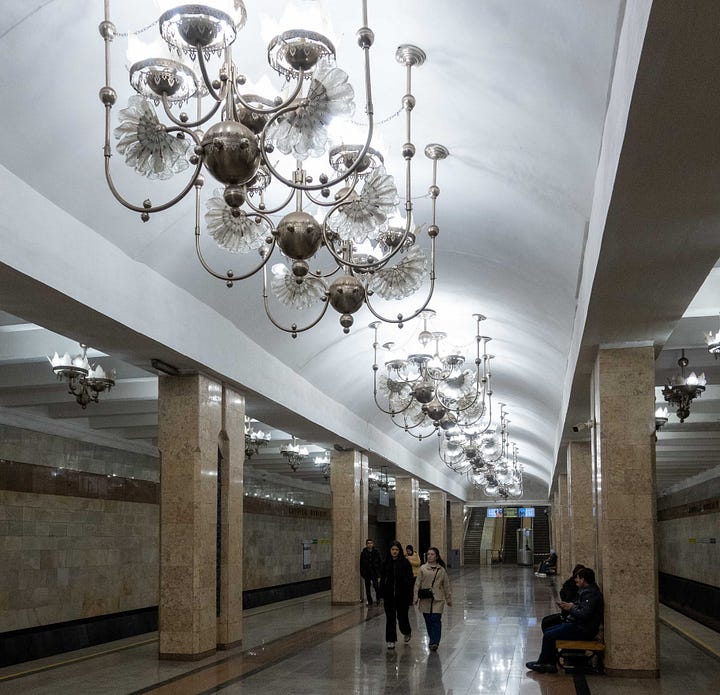
Then there is the issue of safety, which directly follows from the respect issue. The idea that a small fee limits the worst behavior seems to have been the experience in Kansas City, where after a period of testing, bus drivers lobbied for a return of fees because of safety issues.
Past studies have been mixed, with both camps in this debate throwing around conflicting and suspect data, but if you have ridden buses all over the US, common sense is on the side of free buses inviting more problems, especially in mid-sized communities that don't have NYC's metro system to act as a de facto shelter for the worst off.
That is what I saw in Phoenix, even with fees (although those are rarely enforced2), where the homeless community uses buses, and bus stops, as shelters, which is understandable given the city’s weather3. That is unfair for everyone involved, the homeless themselves, and especially the workers who simply want to use the bus to get home.
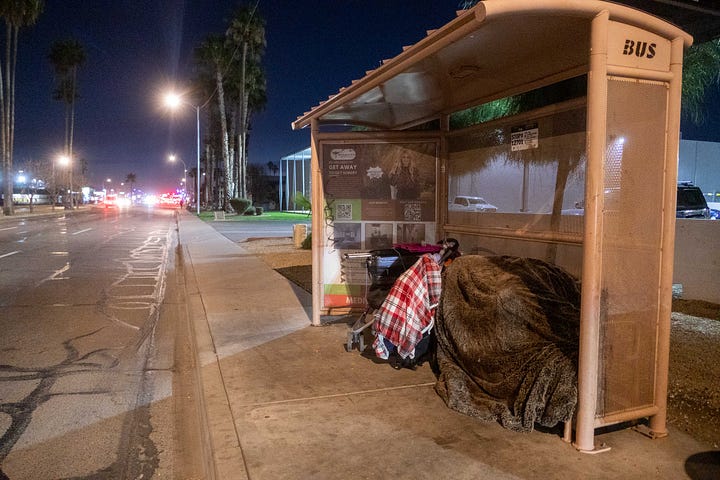
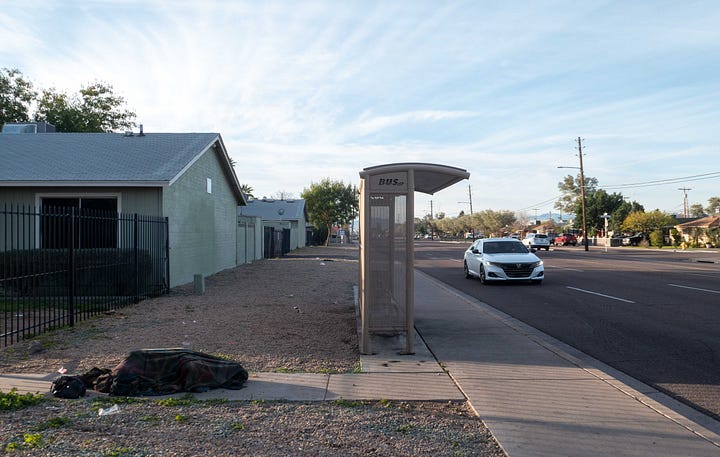
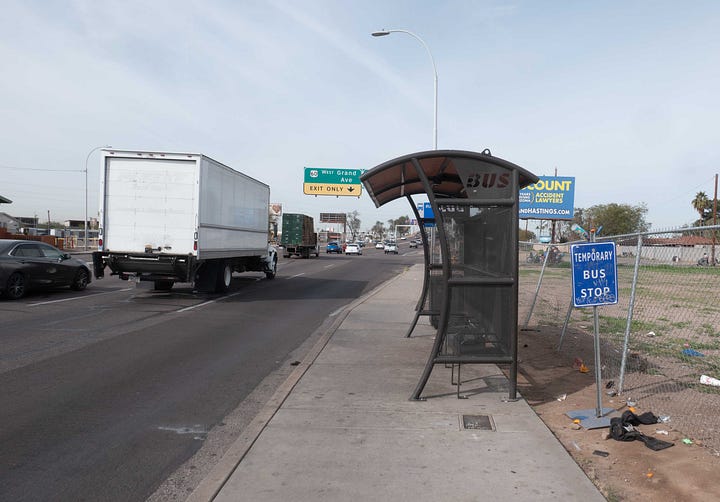
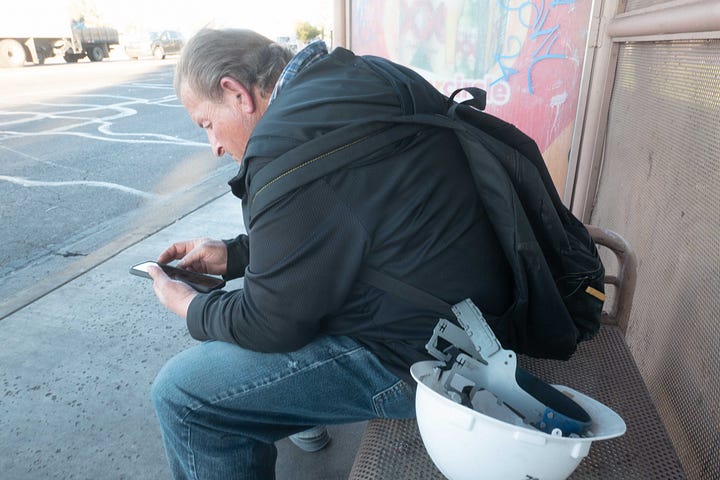
Eliminating fares wouldn’t be that big of a deal, wouldn’t destroy a system, not financially or with chaos, but it’s another step towards stigmatizing buses as something only losers use, which means they can more easily be ignored by the rest of society, left to linger as an annoying cost in a municipal spreadsheet that continues to slowly degrade in quality, since it is out of sight and mind.

